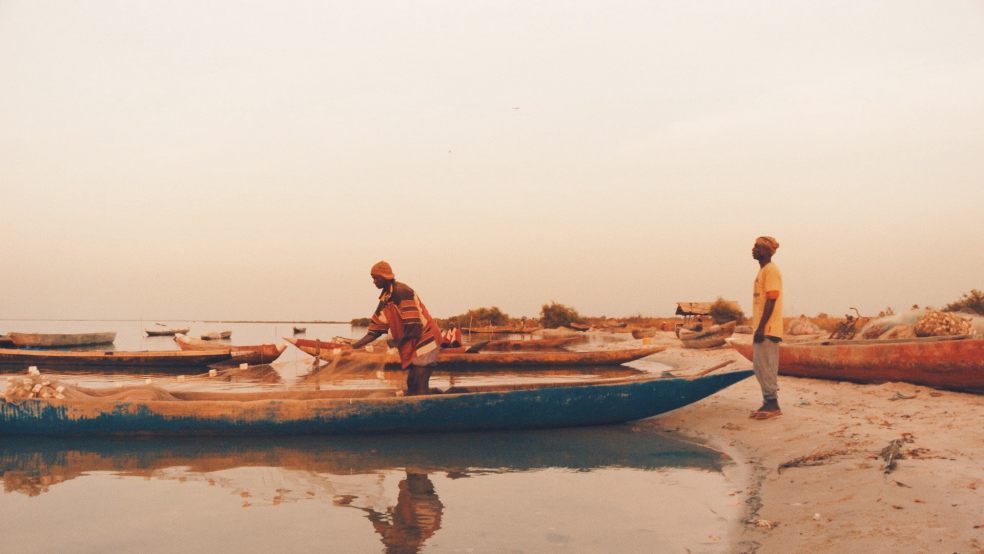
Incredible lives of rural African community who speak at least six languages showcased at Exeter event
The incredible lives of people in a rural African community who speak a minimum of six languages will be showcased in Exeter this week.
There are five households in the tiny village of Agnack in Senegal but everyone is multilingual, despite the fact few have been educated formally.
The families live near several important African rivers, so have learnt languages by talking with people from other parts of the continent and elsewhere who travel to the area. They always marry someone from neighboring Guinea Bissau, which also brings new languages into the community. There is a strong cultural tradition of hosting strangers in the community.
University of Exeter PhD Candidate Anna Sowa captured their lives in the film Kanraxël - the confluence of Agnack, after spending three weeks in the village. It will be shown at the University of Exeter on Friday, 23 June.
Chouette Films, the film production company that Anna co-founded, was the first to be allowed to film the preparations for celebration of the life of a former Agnack leader a year after he had died.
Anna, herself bilingual, said: “The people of Agnack take huge pride in speaking as many languages as possible. Being multilingual is often connected with living in urban areas, which are often more multicultural, or having high levels of education. But the geographical position and history of Agnack mean people have had access to different languages and cultures in another way.
“This shows that learning languages in a different way can be just as effective as sitting in a classroom and using grammatical rules and textbooks. When we made the film four years ago we hoped to change perceptions.”
The film is based on research by Professor Friederike Lüpke of SOAS, University of London, with the Crossroads Project. It is available in the Royal Anthropological Institute film catalogue. The film was honoured at the Arts and Humanities Research Council (AHRC) 10th Anniversary Research in Film Awards at the British Film Institute (BFI). It also won the Best First Feature award at the MICGénero International Film Festival and was made part of the Official Selection the 11th Aljazeera International Documentary Film Festival and many other.
Anna, who is based in the Centre for Interdisciplinary Film Research at the University of Exeter, has worked with Professor Lüpke, other researchers and an educator to produce new resources for teachers which can be used in lessons to teach students about language development and African culture, inspired by the way people in Agnack acquire languages. The web-based resources are for secondary school pupils and university students.
The film will be shown at 5pm on Friday, June 23 in Lecture Theatre 1 in the Queens Building at the University of Exeter. The event, which also includes discussion about the making of the film, will be chaired by Dr Felicity Gee of the Centre for Interdisciplinary Film Research. Professor Lüpke will speak about her research into the Agnack community and the new teaching resources.














